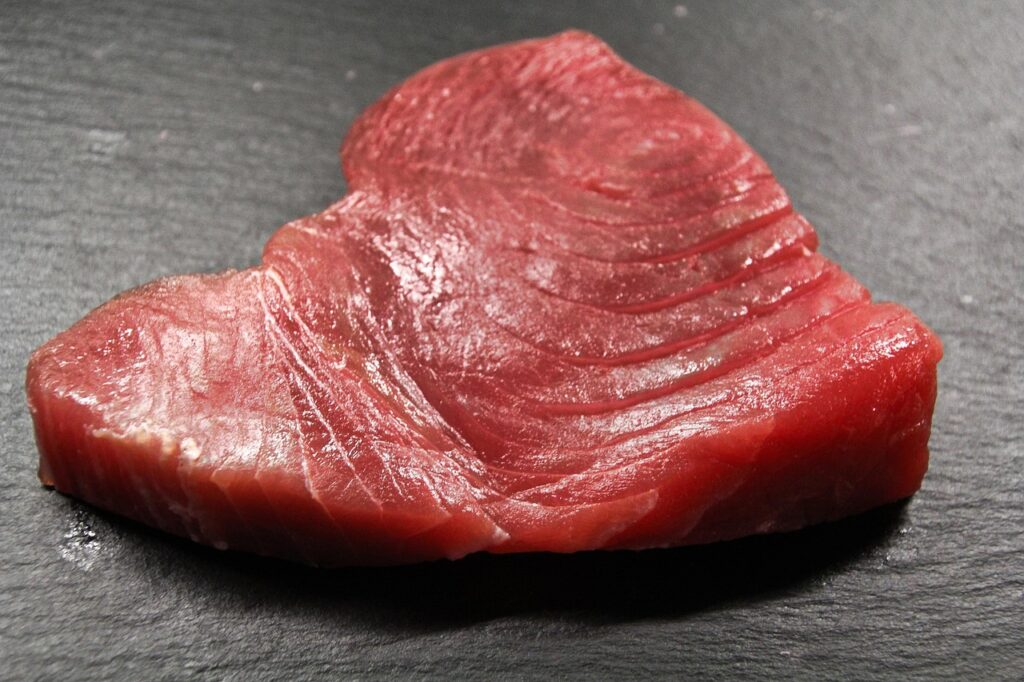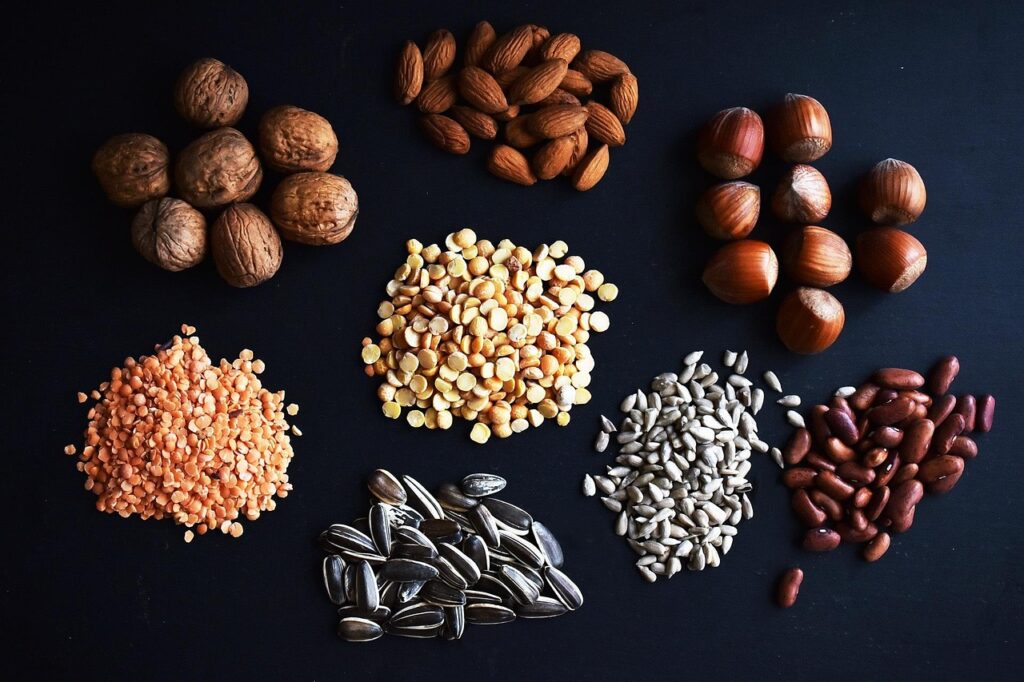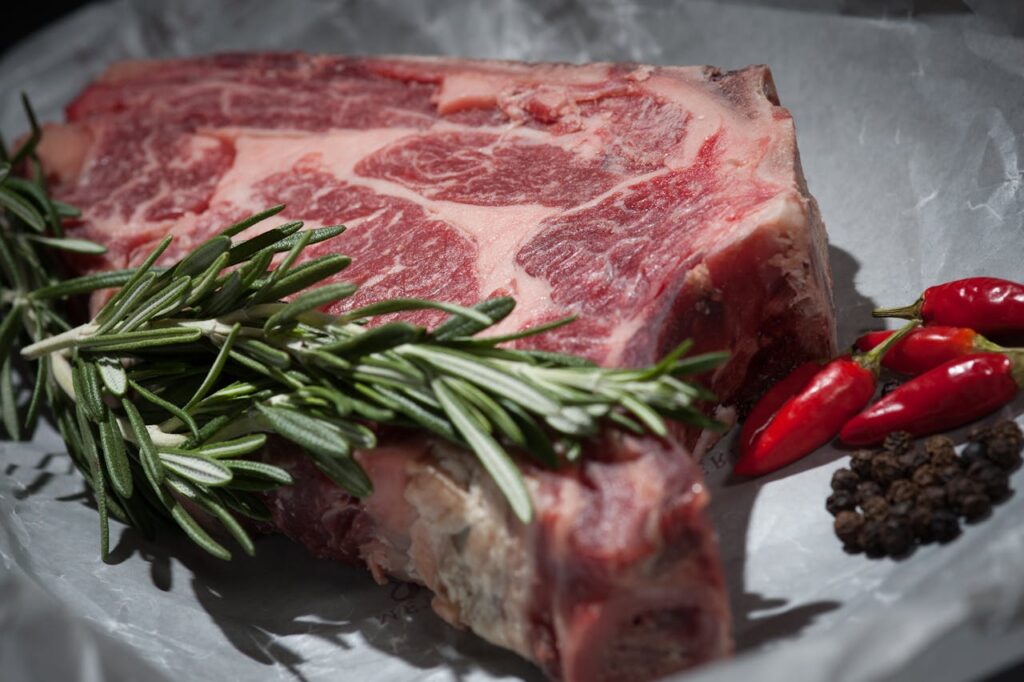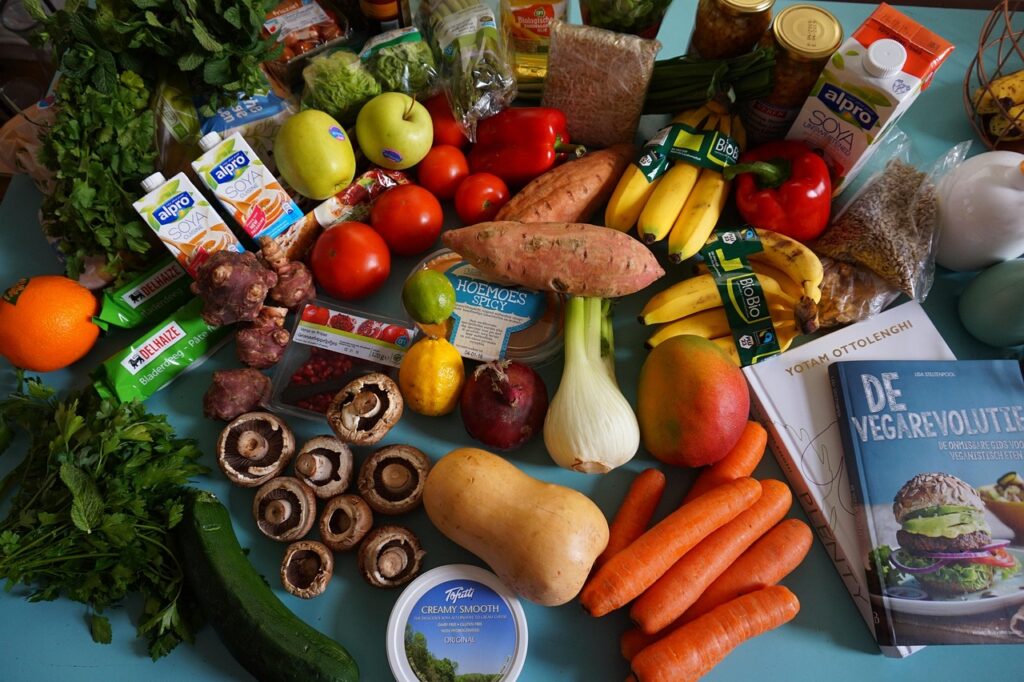
25 Surprising Facts About Protein That Everyone Should Know
Facts About Protein
Among the essential nutrients required by the human body, protein holds a place of extraordinary importance. Therefore, by uncovering facts about protein, misconceptions can be cleared while confidence in dietary choices is built.
Although it is often linked mainly to muscle mass and athletic performance, its functions extend far beyond those associations.
As an essential macronutrient, it contributes to chemical reactions, supports the immune system, and aids in maintaining good health. Because so much misunderstanding exists about daily protein requirements and the different types of protein, exploring verified facts about protein becomes crucial.
Moreover, when enough protein is not consumed, health problems may arise that impact muscle tissue, energy levels, and even red blood cells.
However, confusion is common about how much protein should be consumed on a daily basis, whether protein-rich foods must come from animal proteins or if plant-based sources are just as effective, and whether high-protein diets actually benefit weight loss and overall health.
Why Protein Is Considered the Building Block of Life
Protein as an Essential Macronutrient
Proteins are built from chains of amino acids, which act as the building blocks of protein. Because these smaller units play a key role in muscle protein synthesis, energy production, and repair of muscle tissue, their importance in biological processes cannot be overstated. Additionally, proteins regulate blood sugar, balance blood pressure, and support skeletal muscle development.
Different Types of Protein in the Human Body
Various different proteins exist in the body, each with a unique role. For instance:
- Structural proteins like collagen help maintain connective tissue.
- Functional proteins support enzyme activity and chemical reactions.
- Transport proteins move oxygen through red blood cells.
Therefore, one fact about protein that stands out is that its roles are as diverse as the different amino acids that make up dietary protein.
How Much Protein Is Enough for Good Health?

Daily Protein Requirements Explained
Protein needs differ based on age, activity level, and health condition. On a daily basis, healthy adults are often advised to consume about 0.8 grams of protein per kilogram of body weight. However, higher protein intakes are often recommended for active individuals, older adults, or those aiming for muscle growth.
Grams of Protein in Common Foods
For a clearer picture of protein content in the diet:
- One egg provides about 6 grams of protein.
- A cup of Greek yogurt offers nearly 10 grams of protein.
- Yellowfin tuna is considered a great source of protein, with over 25 grams per serving.
Because dietary protein can come from both animal foods and plant-based sources, flexibility exists in meeting protein needs.
Plant-Based vs. Animal Sources of Protein

Animal Proteins and Their Benefits
Indeed animal products such as lean meats, dairy products, and fish often provide high-quality protein containing all essential amino acids. Therefore, animal sources remain a good source of protein for many people who seek efficient muscle growth and repair.
Plant-Based Protein Sources
However, plant-based proteins such as beans, lentils, tofu, and quinoa also serve as excellent protein-rich foods. While some plant proteins are considered incomplete proteins because they lack certain non-essential amino acids, combining different plant-based protein sources can overcome that limitation.
Fun Facts About Protein Choices
Interestingly, it has been shown that high-protein foods from both animal and plant-based diets can support a healthy weight and reduce risks associated with cardiovascular disease and heart disease (Harvard T.H. Chan School of Public Health). This fact about protein highlights that both plant-based and animal sources play an important role in maintaining overall health.
The Role of Protein in Muscle Growth and Repair
Because protein supplements and protein shakes are often marketed toward athletes, questions arise about whether protein powders are necessary. Although whole foods remain the best sources of protein, protein powders may help active individuals meet higher protein needs when food intake is insufficient. Moreover, muscle tissue is constantly broken down and repaired, and dietary protein provides the necessary new protein for muscle protein synthesis.
I’d really appreciate it if you could read this article The Best 22 Interesting Facts About Muscle in the Human Body when you have a moment. It’s related to what we’ve been discussing.
Protein’s Important Role in Weight Management
High-Protein Diets and Weight Loss
Because high-protein diets have gained attention in recent years, one of the most discussed facts about protein involves its impact on weight loss. Studies have demonstrated that a higher protein intake can increase satiety, reduce overall food intake, and promote fat loss while preserving muscle mass. Moreover, diets rich in protein have been linked to better blood sugar regulation, which further supports a healthy weight.
Protein’s Effect on Appetite
In addition, consuming protein-rich foods triggers the release of hormones that promote fullness. Therefore, protein shakes, lean meats, and plant-based protein sources can be valuable tools for those seeking weight control. When extra protein is consumed strategically, cravings can be reduced, making it easier to stick to a healthy diet.
Dietary Protein and Its Impact on Overall Health

Protein and the Immune System
Because proteins serve as the foundation for antibodies, they support the immune system in fighting infections. Without enough protein, the body struggles to produce immune cells effectively. Therefore, dietary protein is directly tied to resilience against illnesses.
Cardiovascular Disease and Protein Choices
However, not all sources of protein are equally beneficial. For example, red meat and some animal products may contribute to cardiovascular disease risk when consumed in excess. In contrast, plant-based proteins and lean meats are associated with lower risks of heart disease. As a result, the type of protein chosen makes a difference for long-term heart health.
Protein and Older Adults
Among older adults, protein plays a particularly critical role. Because muscle mass naturally declines with age, higher protein intakes can help preserve skeletal muscle and reduce frailty. Moreover, protein-rich foods are essential in maintaining balance, mobility, and independence for healthy adults as they grow older.
Protein Powders, Supplements, and Shakes

Do Protein Supplements Work?
Protein supplements such as whey protein, casein, and plant-based powders are often promoted for muscle growth and repair. Although whole foods remain the preferred source, protein powders can serve as a convenient option for active individuals or those who struggle to meet daily protein intake.
Whey Protein vs. Plant-Based Powders
While whey protein, derived from dairy products, is considered a high-quality protein because it contains all essential amino acids, plant-based protein sources like pea, soy, and rice proteins also provide effective support. Furthermore, combining different plant proteins ensures a balanced amino acid profile.
When Are Protein Shakes Useful?
Protein shakes can be particularly valuable after exercise, when muscle protein synthesis is heightened. Because skeletal muscle requires a steady supply of amino acids to repair muscle tissue, shakes offer a quick and effective solution. Therefore, they are often favored by athletes, bodybuilders, and active individuals.
Biological Processes Driven by Protein
Protein as an Energy Source
Although carbohydrates and fats serve as the body’s main fuels, protein can act as an energy source when food intake is insufficient. However, relying on protein for energy is not ideal because it diverts dietary protein away from its primary roles in muscle tissue repair and immune system support.
Protein in Chemical Reactions
Because enzymes are made of proteins, countless chemical reactions throughout the human body depend on them. From digestion to blood clotting, proteins carry out vital functions that sustain life. Therefore, one of the most important protein facts is that without enzymes, biological processes would come to a halt.
Different Types of Protein in Foods

Animal Sources of Protein
Animal foods provide some of the most protein-dense options available. Lean meats such as chicken and turkey, dairy products like milk and cheese, and fish including yellowfin tuna all contain high protein content. Because these animal sources typically include all essential amino acids, they are labeled as complete proteins. Therefore, they are considered a great source of protein for building and maintaining muscle tissue.
Plant-Based Sources of Protein
However, plant-based protein sources are also highly valuable. Beans, lentils, quinoa, chia seeds, and soy products offer strong contributions to daily protein requirements. While some plant proteins may be incomplete proteins, they can easily be combined with other plant-based foods to create a full amino acid profile. For example, rice and beans together form a balanced protein.
Incomplete Proteins and Food Pairings
Since many plant-based proteins do not contain all essential amino acids, they are sometimes labeled as incomplete proteins. Yet, when plant sources are eaten in different ways throughout the day, the body can still obtain all necessary nutrients. Therefore, individuals following a vegan diet or vegetarian diet can meet their protein needs effectively with careful food choices.
Protein Content in Everyday Foods

Examples of High-Protein Foods
Because food intake varies by culture and preference, understanding protein content in common foods helps in meal planning. Some examples include:
- 3 ounces of chicken breast: about 26 grams of protein
- 1 cup of lentils: about 18 grams of protein
- 1 cup of cottage cheese: about 28 grams of protein
- 3 ounces of yellowfin tuna: about 25 grams of protein
- 2 tablespoons of peanut butter: about 8 grams of protein
Protein-Rich Foods Across Diets
Interestingly, both high-protein diets centered on animal products and plant-based diets can deliver sufficient protein. Because variety exists among protein-rich foods, almost any dietary pattern can be adjusted to meet daily protein intake goals.
The Science Behind Protein Needs
Daily Protein Intake by Activity Level
Protein needs shift based on activity level and life stage. For healthy adults, about 0.8 grams of protein per kilogram of body weight is the baseline. However, active individuals, such as athletes, often require 1.2 to 2.0 grams of protein per kilogram of body weight to support muscle protein synthesis and repair.
Protein Requirements for Older Adults
For older adults, higher protein intakes are often recommended to counteract age-related muscle loss. Therefore, experts suggest at least 1 to 1.2 grams of protein per kilogram of body weight for this group.
The Role of Extra Protein
Although extra protein is often consumed through protein shakes or protein supplements, the body can only store protein for short-term use. Any excess beyond immediate needs may be converted into energy or stored as fat.
Protein’s Key Role in Muscle Growth

Muscle Protein Synthesis Explained
Because muscles are constantly being broken down and rebuilt, dietary protein is vital for new protein creation. Muscle protein synthesis depends on the intake of high-quality protein containing different amino acids. Therefore, timing protein consumption, especially after exercise, is beneficial for repair muscle functions.
Lean Meats and Plant-Based Alternatives
Lean meats, dairy products, and whey protein are commonly promoted for muscle growth. However, plant-based proteins such as soy, pea, and hemp also support skeletal muscle development. Therefore, both animal proteins and plant proteins can be chosen depending on personal dietary preferences.
Fun and Lesser-Known Protein Facts
Protein Deficiency and Its Consequences
Because protein plays such an important role in good health, a lack of it leads to noticeable consequences. Protein deficiency may cause fatigue, thinning hair, brittle nails, loss of muscle mass, and a weakened immune system. In severe cases, children in developing regions may experience growth delays and compromised overall health. Therefore, ensuring enough protein in a daily diet is essential for both healthy adults and older adults alike.
Protein in the Smallest Countries
Interestingly, some of the smallest countries in the world have diets that rely heavily on plant-based protein sources. For instance, island nations often depend on plant proteins such as legumes, nuts, and seeds because animal products may not always be widely available. This demonstrates the flexibility of protein-rich foods across different cultures and lifestyles.
Protein as Part of Red Blood Cells
Among the many protein facts worth noting, hemoglobin—a protein in red blood cells—carries oxygen throughout the body. Without this transport function, survival would not be possible. Therefore, proteins are not only linked to muscle growth but also to the fundamental processes that keep the human body alive.
Read this The Best 14 Mysterious Facts About Rh Negative Blood when you can? It offers some additional insights on the topic.
Protein in Different Ways of Eating

Vegan Diet and Plant-Based Eating
For those following a vegan diet, plant-based protein sources such as quinoa, tofu, beans, and lentils are staples. Although plant-based proteins may lack certain amino acids, a balanced plant-based diet can still meet daily protein requirements. Moreover, plant-based diets rich in protein are associated with a reduced risk of cardiovascular disease.
Vegetarian Diet Considerations
In a vegetarian diet, dairy products and eggs often provide high-quality protein, complementing plant-based protein sources. Because these foods contain essential amino acids, they help maintain muscle mass while supporting overall health.
High Protein Diets and Long-Term Health
While high protein diets are popular among athletes and those pursuing weight loss, balance is necessary. Excess reliance on red meat and certain animal foods may increase risks of heart disease and high blood pressure. However, high-quality protein from lean meats, dairy products, and plant-based protein sources supports long-term health.
The Science of Protein Structure
Chains of Amino Acids
Proteins are formed from long chains of amino acids linked by peptide bonds. Each chain folds into a unique three-dimensional structure that determines its function. Because there are different amino acids, proteins vary widely in their roles and properties.
Essential vs. Non-Essential Amino Acids
Of the 20 amino acids, nine are considered essential amino acids, meaning they must be obtained from food. The rest are non-essential amino acids, which the body can produce on its own. Therefore, a healthy diet must include a variety of protein-rich foods to provide essential amino acids.
Protein as Smaller Units for Larger Functions
Because proteins are built from smaller units, they illustrate how simple building blocks of protein can produce complex biological functions. From muscle protein synthesis to immune defense, protein structure remains a fascinating area of science.
Protein in Everyday Life

How the Human Body Uses Protein Daily
Every day, protein is used to repair muscle, produce enzymes, and regulate hormones. Because most protein cannot be stored long-term, a steady intake is necessary. Therefore, daily protein intake is not just recommended but required for good health.
Protein and Energy Levels
Although carbohydrates are the preferred energy source, protein helps maintain energy during fasting, exercise, or calorie restriction. Moreover, protein stabilizes blood sugar, which prevents energy crashes.
Protein’s Role in Long-Term Health
Protein and Cardiovascular Health
Because food choices influence cardiovascular disease, the type of protein consumed matters significantly. Diets heavy in red meat and processed animal products may increase risks of heart disease. However, incorporating lean meats, fish, plant-based proteins, and whole foods reduces these risks and promotes good health. Therefore, focusing on high-quality protein improves long-term heart outcomes.
If you have some free time, it might be helpful to check out this article Intriguing Facts About the Circulatory System (The Best 23). It covers some relevant points.
Protein and Blood Sugar Regulation
Moreover, protein has been shown to stabilize blood sugar levels. By slowing digestion and absorption, protein helps prevent spikes and crashes that can lead to cravings. Therefore, protein plays a key role not only in maintaining a healthy weight but also in supporting individuals with blood sugar concerns.
Protein and Healthy Adults
In healthy adults, maintaining enough protein intake helps support muscle tissue, bone strength, and immune function. Because biological processes depend on different proteins daily, prioritizing protein-rich foods across meals remains critical.

Snippet-Friendly Section: Quick Protein Facts
- Protein is made of chains of amino acids, the building blocks of protein.
- About 0.8 grams of protein per kilogram of body weight is recommended for healthy adults.
- Yellowfin tuna is a great source of protein, offering over 25 grams per serving.
- Plant-based protein sources like beans and lentils are rich in dietary protein.
- Protein shakes and protein powders can help meet higher protein needs for active individuals.
- A lack of protein leads to muscle loss, fatigue, and weakened immune system.
(Source: Harvard T.H. Chan School of Public Health)
Facts About Protein: Frequently Asked Questions
What are some surprising facts about protein?
One surprising fact about protein is that it is not only essential for muscle growth but also for red blood cells, enzyme activity, and immune defense.
How much protein should I eat daily?
For healthy adults, about 0.8 grams of protein per kilogram of body weight is suggested. However, active individuals or older adults may need higher protein intakes.
Can plant-based sources provide enough protein?
Yes, plant-based sources such as beans, lentils, tofu, and quinoa can meet protein needs. By combining different plant proteins, a complete amino acid profile can be achieved.
Are protein supplements necessary?
Protein supplements are not necessary for everyone. However, they may be helpful for athletes, bodybuilders, or people struggling to meet protein needs through food alone.
What happens if I eat too much protein?
Extra protein beyond the body’s needs may be converted into energy or stored as fat. While higher protein intakes are safe for most healthy adults, balance is important.
Do high-protein diets improve weight loss?
Yes, high-protein diets often support weight loss because they reduce appetite, increase satiety, and preserve muscle mass during calorie reduction.

Facts About Protein Conclusion
Throughout this article, many fascinating facts about protein have been uncovered, ranging from its role in muscle protein synthesis to its importance in cardiovascular health and immune defense.
Because protein is an essential macronutrient, every human body relies on it daily to sustain life and promote overall health.
Whether obtained through animal proteins, plant-based protein sources, or protein supplements, meeting daily protein requirements is necessary for energy, muscle growth, and a healthy weight.
Moreover, both high-protein diets and balanced plant-based diets can provide enough protein to support biological processes.
Read this next Interesting Facts About the Urinary System You Should Know
With so many different types of protein available through whole foods, it is possible for everyone—whether active individuals, older adults, or healthy adults—to enjoy a diet that supports long-term good health.
Therefore, understanding and applying these protein facts empowers better choices and promotes confidence in everyday nutrition.




